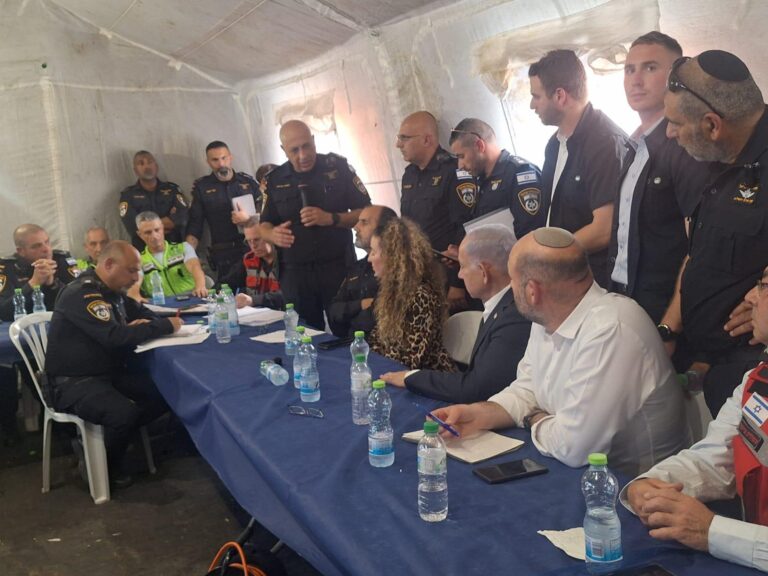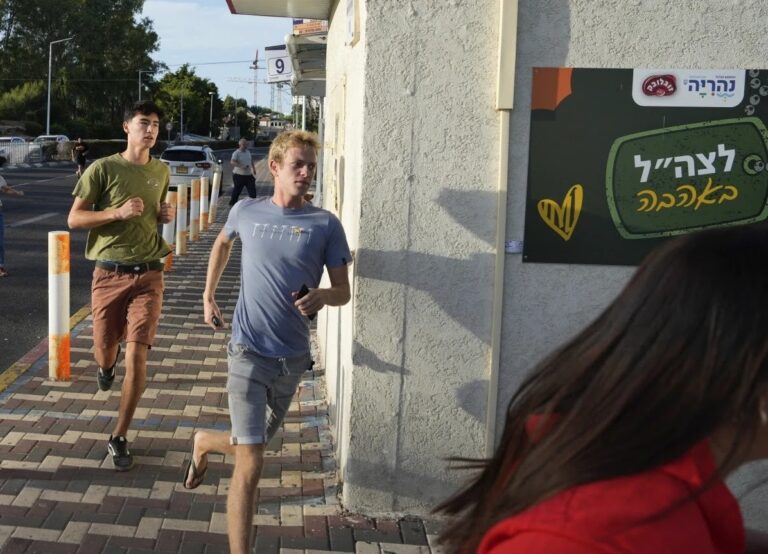By Rabbi Yair Hoffman for the 5 Towns Jewish Times
The tickets are $100 each and you can win $50,000 or a new Tesla. This is the Chicago Chessed Fund raffle, but the issues apply to all of them. It should be noted that the Chicago Chessed Fund is a remarkable organization that is worthy of our generous support – notwithstanding what this article may conclude. Click here to purchase tickets.
Here are five interesting issues:
1] He thought he won and made a Boruch haTov v’hameitiv. He lost. Was it a bracha levatala?
2] Is purchasing a raffle ticket permitted in the first place or is it a type of gambling that the sages forbade?
3] What if someone’s tzedaka raffle ticket was left out by accident – must the raffle be redone?
4] Is the $100 considered tzedakah in the first place?
5] Should raffles sway our Tzedakah priorities? Also, while we are at it, what are our Tzedakah priorities – or what should they be ideally in terms of halacha?
BRACHA LEVATALAH
In answer to our first question, Rav Yitzchok Zilberstein cites the Hisorerus Teshuva Vol. II #45 stating that the blessing was on his happiness – and at that time, he was happy. Although Rav Zilberstein (Chashukei Chemed Brachos 54a) believes that the Hisorerus is a bit too innovative – other Poskim accept it.
IS IT PERMITTED?
In response to whether or not it is permitted in the first place, Rav Ovadiah Yoeph in Yabia Omer Vol. VII (CM #7), rules that for Sefardim it is, in fact, forbidden. He is disagreeing with Yaskil Avdi (Vol. VIII YD 5:3) who permits it even for Sefardim. The reason is that the Rambam considers it a rabbinic form of theft based upon the principle of asmachta lo kanya – the purchaser believes that he is going to win and therefore does not fully give up on the money. Collecting that $100 according to the Rambam and the Shulchan Aruch is thus considered Rabbinic theft. Others hold that since the money is given over – this does not fall under the rubric of asmachta lo kanya. Rav Ovadya suggests that it may also be forbidden even for Ashkenazim.
IF THERE IS AN ERROR – SHOULD IT BE REDONE?
As far as the third question – Rav Chaim Kohn’s Business Halacha Institute rules that the
tzedakah raffle must be redone – even if only one raffle ticket holder protests. The BHI cites Rav Yair Bacharach in Chavas Yair #61 who rules in regard to a Purim raffle for a large sum of money that when an error occurred and a slip number was left out of the hat – the entire raffle must be redone if even one of those who put in the slips complains – this is true even if their chances of winning are increased by the error. He cites the Gemorah in Bava Basra 106b and Shulchan Aruch CM Siman 175. The reason is that winning a raffle all has to do with hashgacha of Hashem.
DISAGREEING WITH RAV CHAIM KOHN
This author would like to suggest a very substantive difference between the two cases. In the Chavas Yair’s case – it wasn’t a tzedakah organization holding the raffle. There is a strong sevarah, rationale, to say that in such an instance – all parties would be mochel. Indeed, according to the Rishumei Aharon Vol. I page 86 by Rav Aharon Felder z”l, Rav Moshe Feinstein, in fact ruled this way for Tzedakah organizations because their intention is for Tzedakkah. Od course, as in all areas of halacha, a competent Posaik should be consulted if this issue does come up.
IS IT TZEDAKAH?
And as for the fourth question, is it considered Tzedakah – the rule of thumb, as discussed with Rav Moshe Shternbuch is as follows: One should imagine that one is purchasing a raffle ticket not from a worthy tzedaka, but rather from, say, the local bowling league. Let’s assume that 1000 tickets are being sold for $100 each. How much would a person pay for a tenth of one percent chance of winning $50,000? If a person would pay $50 then only the remaining $50 of the raffle ticket is considered maaser. If, however, you are risk averse and would only pay, say $25 for such a ticket then you can deduct $75. This is true even if the value is actually $50 (which it actually is).
RAFFLES VERSUS PRIORITIES IN TZEDAKAH
Finally the last issue. The proliferation of raffles and Chinese auctions have created a situation where many people are no longer giving regular Tzedakah, or at least in significant amounts. Many Poskim (Rav Shternbuch among them) have suggested that this practice be curtailed. On the other hand, there are some very worthy tzedakos that need to do these things in order to raise the necessary funding. Should a raffle sway our priorities? This author believes that it should not.
Visit CCFRaffle.com/tickets to purchase your tickets.
THE PRIORITIES
What should our priorities be?
The poskim do, in fact, delineate an order as to which tzedakos or which aniyim (poor people) we should give to first.
A recent work printed in Yerushalayim by Rabbi Avrohom Moshe Zemmel, entitled “Ahavas
Tzedakah,” provides us with just such a list.
There are three types of tzedakah where the phrase “kodemes lakol” (it precedes everything else) is employed. The three types are:
1. Charity given to a Torah educational institute whose very existence is threatened with closure and the future of Torah for K’lal Yisrael, the Jewish People, is at stake. There are only three things for which we must sacrifice our lives—to avoid the sins of murder, arayos, and idol worship. Yet we see that Rabbi Akiva sacrificed his life in order to teach Torah. How could this be? The answer is that it involved the future of Torah for the Jewish People. (This is based upon the words of the Birchas Shmuel in his introduction to tractate Bava Basra.)
2. Charity given to save a Jew from conversion in a situation where it is permissible to violate the Shabbos in order to save him (see Orach Chaim 306:14).
3. Charity given to save a life—or to possibly save a life—i.e., pikuach nefesh. Regarding charity for the poor, the precedence is as follows:
• A poor person who is a relative receives precedence over a poor person who is unrelated. (Of course, if he will starve, the hungry poor person comes first.) A related poor person takes priority over the unrelated poor person even if the unrelated one is a Torah scholar (see Rabbi Akiva Eiger, Y.D. 251:3).
Ah, but which relative “beats” the other relatives in a “claim” for charity? Are there criteria as to which relative should be supported first?
The answer, of course, is, yes.
• The first relative that deserves one’s charity is yourself. If you cannot make a living, you should not be giving to others before yourself. This is based upon the pasuk “V’chai achicha imach—and your brother shall live with you”; your existence comes first (Tur, Yoreh Deah, chapter 251, citing Rav Saadya Gaon).
• The next relative is one’s parents. A father and mother come before anyone else.
• A son and daughter come next.
• A brother and sister come next.
• A paternal sibling comes before a maternal sibling.
• One’s spouse’s relatives come before strangers.
• One’s ex-spouse comes before others (see Rema 119:8).
• A talmid chacham (Torah scholar) non-relative precedes a non-relative who is not a talmid chacham, even if the talmid chacham is not from one’s own city.
• Unrelated poor people from one’s own city precede poor people from another city—but not when the poor of another city have greater needs (see Y.D. 251:3 and Responsa Chasam Sofer Y.D. 234).
• The poor of Eretz Yisrael have precedence over the poor of another city, but not over the poor of one’s own city (see commentaries of Shach and Bach, Y.D. 251:6).
This last criterion is key. According to most poskim our local charitable cases beat out the poor of Eretz Yisrael. This would mean that the local Davis Memorial Fund would have precedence over the Israel charity cases. (There is, however, an opinion of the Debreciner Rav’s older brother, the BeTzel HaChochmah [Vol. IV, 163:16] that there are two mitzvos involved regarding the poor in Israel: the mitzvah of settling the Land as well as the mitzvah of tzedakah. He opines that the poor of Israel would beat out the poor in our own city. One should consult one’s rav, but the simple answer seems to be like the Shach and Bach, that the local poor people have precedence.)
What about where we have two equal relatives? Is there another criterion that comes into play? For example, if one has two siblings, both in need of assistance, which one comes first?
• The one who is a greater Torah scholar receives precedence over the other.
• The next criterion is based upon gender; a sister’s needs take precedence to a brother’s.
Are there different grades of talmidei chachamim? In other words, if there are two Torah scholars and one of them has a much wider breadth of knowledge but the other has a deeper breadth of knowledge, who precedes the other? The Vilna Gaon (Shulchan Aruch 251:18) cites the Talmud Yerushalmi that the breadth-of- knowledge scholar receives precedence to the depth-of- knowledge scholar.
It is important to note that one should make every effort possible to avoid supporting one’s
parents with tzedakah money. The Gemara tells us (Kiddushin 32a) that a curse should come upon a person who supports his parents through money that is destined for charity. This means that the money he should spend on them should be aside from money that he should give to charity. Of course, if there is no other option—if he cannot afford to give both—then there is nothing wrong with giving to his parents. The Talmud is only referring to a case where a person could have afforded to do otherwise.
There are also other criteria for priority of tzedakah:
• Pidyon shvuyim (redeeming captives) is primary.
• Supporting a mikveh, in a place where there is no other mikveh and there is a chance that people will stumble in prohibitions that involve kareis—takes precedence over supporting a yeshiva.
• Charity so that children can study Torah is next (i.e., a yeshiva).
• There is a debate as to whether tzedakah to run the day-to- day activity in the beis ha’knesses (for example, the electricity bill) receives precedence over tzedakah to poor people. The Shulchan Aruch (Y.D. 251:16) rules that the synagogue needs come first, while the Vilna Gaon (Y.D. 251:20) rules that the poor people receive precedence. Clearly, everyone agrees that it is only the day-to- day activities being discussed and not the building fund (see Aruch HaShulchan, ibid). Indeed, Rav Vosner questions how some institutions can be requesting tzedakah funds to build beautiful edifices when there are poor people who are literally starving.
• The issue of need is also important. If one person needs money now while another needs it later, Rav Moshe Feinstein writes that the more pressing need takes precedence (Igros Moshe, Y.D. Vol. I, No. 144).
The bottom line is that tzedakah precedence and the decision of who to give to is not something that should be approached flippantly or without thought, and should not be swayed by Chinese auctions or raffles. Tzedakah is a limited resource (and, with the current financial crisis, it appears that it will become even more limited). One should keep in mind that there exist halachic criteria as to which receives precedence.
One last thought: Tzedakah should be given lishmah, with the best of intentions. It should not be done to impress anyone else—whether they be friends, family, or one’s rav or poseik. It should also be given b’seiver panim yafos—with a smile.
Purchase your tickets at CCFRaffle.com/tickets.
The author can be reached at [email protected].











